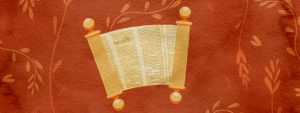
A WEEKLY TORAH THOUGHT FROM RABBI MORDY
This week’s Parsha continues Moses’s parting message to the Jewish people. Shoftim means “judges,” referring to, as Moses reiterates, those appointed to carry out the principle of “Justice, justice you shall pursue.” Moses then continues to reiterate various laws, including one at the end of the Parsha called the “Eglah Arufa.” It refers to a situation in which a dead body is found in an ownerless field; in addition to no one knowing who killed this person, he is found outside of any incorporated town or village. How should justice be served in this case? The law is that the elders should measure the distance to the closest town and the leaders of that town should bring a sacrifice – a form of soul searching and cleansing – in order to ensure that the person’s blood is “not on their hands.” Why and how? Because, while this person was indeed found in an ownerless place, it is likely that he left from the closest town. Had the townsfolk acted more properly—given him direction, sent him off with food and drink—perhaps his unfortunate fate could have been avoided. An interesting law to be sure. And it brings us back to the story of Jacob and Joseph. Why, you may ask? When Joseph was reunited with his brothers after his servitude and imprisonment in Egypt, the brothers reported his fate back to their father Jacob, who had assumed him dead. Jacob did not accept that he was alive until Joseph sent wagons filled with goods from Egypt. Then Jacob accepted it. Why wagons? Wagons in Hebrew – “Agalot” – is the same root word as (you may have guessed it) “Eglah,” as in the law we just learned. It was also the last teaching Joseph heard from his father before his saga with his brothers. So Jacob was comforted that Joseph recalled his learning from years ago. But is that it? Could there be more to this story? There certainly is. By Joseph reminding his father of their learning, he was also showing him a principle that guided him through his trials and tribulations. Yes, he may have been alone in an “ownerless land,” but he was strengthened knowing there was someone thinking about him, someone responsible for him. Similarly, regarding the eglah arufa, the elders may have done nothing wrong, but they, as elders, are responsible for everyone who passes through their town. And so it goes today from both sides; as a community, we have the responsibility for others – who needs a check in, how is my neighbor feeling? As individuals, when we receive that care and concern, we must internalize it for our own self-actualization —we have infinite value and a unique contribution to make in this world. Joseph never forgot this lesson and changed the course of Jewish history; let’s be sure never to forget it either. Good Shabbos!





